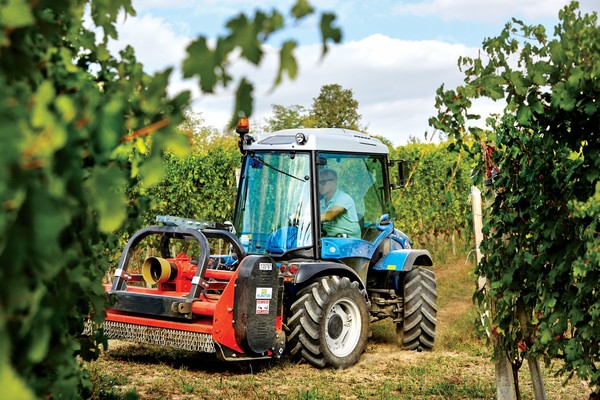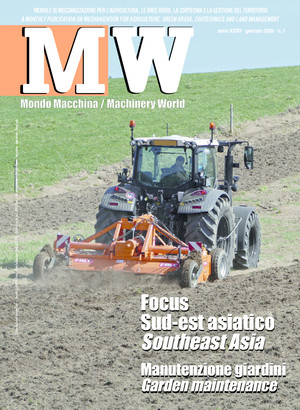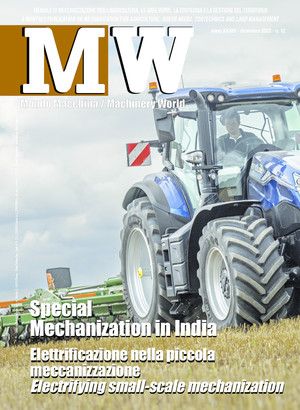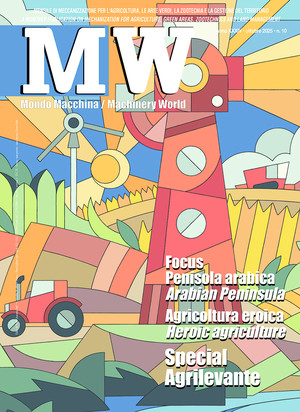
Agricultural machinery: a "direction" for the National Recovery Plan
In the framework of its assembly, the Manufacturers' Federation organizes a Forum dedicated to the implementation of the National Recovery Plan. Experts and technicians are working to draw up a map of the mechanization needs. Mechanical and electronic technologies as a critical element for agriculture "transition". Mechanization as a structural element of any environmental and territorial policy
The discussion on public funds for agricultural machinery has become highly topical. The National Research and Resilience Plan, which is the implementation tool for the EU's Next Generation in Italy, provides funds for the agro-mechanical sector under the chapter on "Innovation and mechanization in the agricultural sector". How much of the 500 million allocated for agricultural innovation will actually be used for the renewal of the fleet, what will be the criteria for the allocation of funds, how will the funds be distributed over time, and how will their impact on the agricultural economy be assessed have become priority issues.
FederUnacoma, the Italian Federation of Agricultural Machinery Manufacturers, has decided to set up a forum on implementing the National Reform Program (PNRR) during its General Assembly, to be held on 19 July in Bologna. Economists, representatives of public bodies and politicians, as well as industry associations and entrepreneurs, have been invited to participate. The FederUnacoma structure has drawn up a technical document that, based on an economic analysis of the sector and reconstructs a map of mechanization needs by product type, suggests an optimized use of the funds allocated and aims to support political decisions. "Never as in this moment is it necessary to have an organic vision of mechanization - says FederUnacoma President Alessandro Malavolti - since there is no longer an agricultural policy that is not also environmental, and there is no technological innovation that does not concern the supply chains in their entirety".
In the Manufacturers' Federation's opinion, the funds allocated to the item "Innovation and mechanization in the agricultural sector" are clearly not enough and can contribute only to an extremely limited extent to the renewal of a fleet of machinery that is, for the most part, obsolete in Italy. Consequently, the Manufacturers' strategy is to intervene at the political level to ensure that mechanization is included as a structural element of all those activities envisaged in the National Recovery Plan concerning land management, green areas management, communities, and economies in rural areas, renewable energies.
FederUnacoma believes that the National Recovery Plan must be combined with all the other political and financial instruments for agriculture and mechanization until the new EU agricultural policy has completed its course and has been implemented at the national level. Therefore, the effort to be made is not only political and programmatic but also cultural. "For example, the debate on how many funds for innovation in agriculture will go to mechanization and how many to the olive oil sector - adds the President of the Manufacturers - is likely to be unnecessarily corporate, since innovation in the sector is tightly integrated. In fact, an olive oil production chain of excellence requires machinery for plant treatments, monitoring and disease prevention, systems for harvesting, transport, and initial processing of the product up to the final transformation. This means that any recovery intervention should be thought in overall terms". " In the Forum being held during our General Assembly, we must think about well-integrated supply chains - Malavolti ends - but also about enlarged supply chains. Precisely a sector such as the olive-oil production produces prunings and by-products of processing that are essential for the production of biofuels and that achieve important objectives of green economy and circular economy".
A remarkable contribution to the FederUnacoma Forum comes from the results of the specific "Think Tank" carried out with member companies, which took place in mid-June and was divided into five working groups on topics such as the impact of PNRR on research, the digitalization of agriculture, the economic and social role of public green, the ecological transition and specific education and training for agricultural mechanics.








